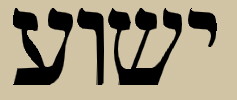
|
|
|
|
|
|
|
|
|
|
|
|
|
|
|
|
|
|
|
|
|
|
|
|
|
|
|
|
|
|
|
|
|
|
|
 |
Studying Hebraic Roots? |
 |
|
Join our Network!
|
||
|
|
||
|
Yeshua: The Hebrew Word for Jesus  |
||
|
Tabernacle Quick Jump Menu Main Page The Bride of Christ Feasts and Festivals Fellowship House of Ephraim & Judah Miscellaneous Sabbath Torah, Prashat, Commentary |
Newsgroup Archives |
Acts 15: Restoring the Tabernacle of David
Acts 15 is a Torah
dispute between Pharisaic believers in Yeshua as the Messiah regarding
the role of circumcision for a non-Jew who wants to be in covenant
relationship with the God of Israel. In order to understand the issue, a
detailed study is done to determine the Biblical meaning and application
of circumcision. What has greater Torah weight - circumcision in the
heart or circumcision of the flesh?
A sect of Pharisaic believers said it is circumcision of the
flesh. Paul argued that it is circumcision of the heart. In order to
understand Paul's position, his teachings on the issue in the New
Testament are examined. In Part 2, it is shown that the reason why the
dispute was settled in Jerusalem is because this is what the Torah
requires. The ruling by James and the brethren was based upon the
prophecy in Amos 9:11 to restore the tabernacle of David which is the
unification of Ephraim and Judah. The four necessary things given to the
non-Jews to observe come from the Holiness laws in Leviticus 17-20.
Furthermore, observance of these four necessary things reverses the sins
of Ephraim mentioned in the book of Hosea.
|